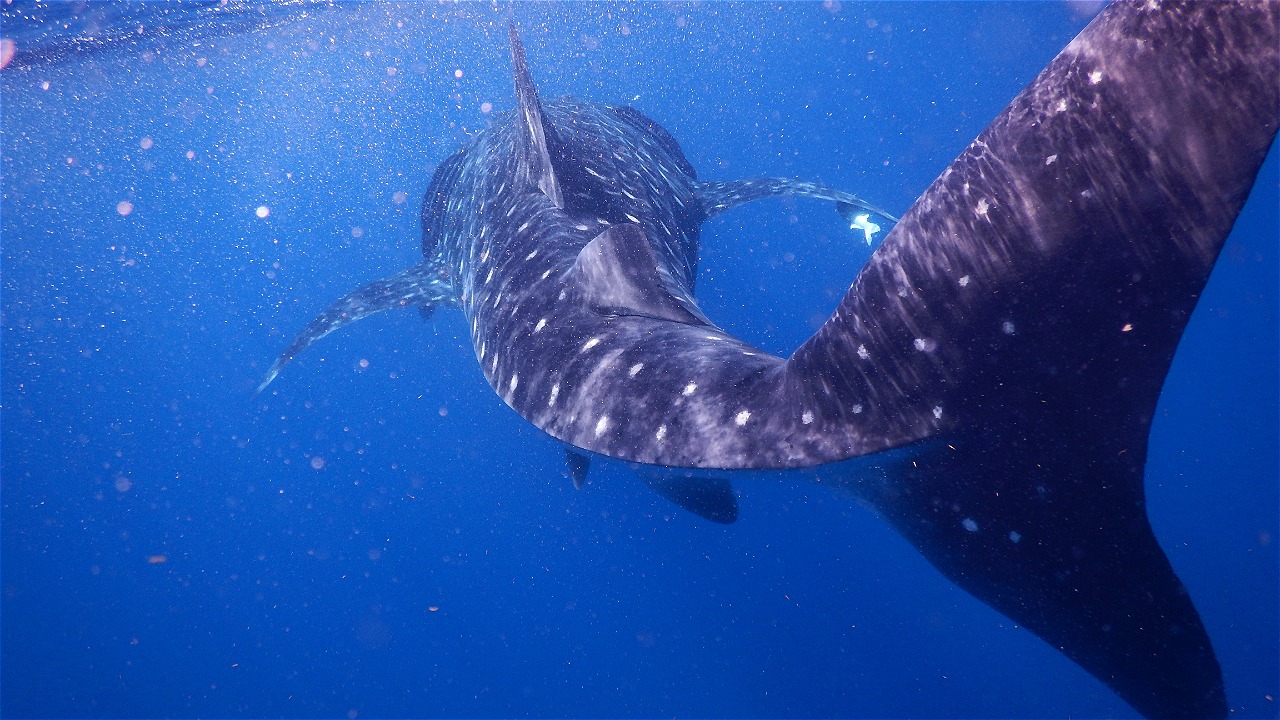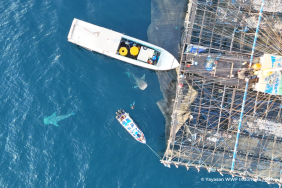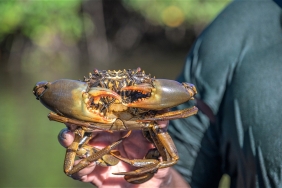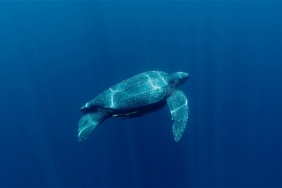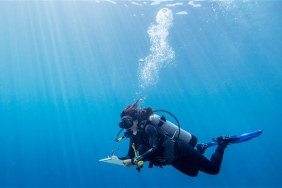DIVE UNDERWATER WITH FRIENDLY SHARKS
By: Ninish Fajrina - Marine Campaign & Social Media Assistant
It's a saying that applies to this type of shark, the whale shark. Labeled a shark, many people equate its nature with other types of sharks. Especially if you have met it, its body that weighs up to 21 tons makes humans solidify their minds that whale sharks are ferocious!
This shark, which consumes plankton and puri fish (a type of anchovy), is known to be very friendly, as evidenced by its closeness to fishermen in Kwatisore waters who feed it puri fish or dead fish, if it appears on the surface of the water or swims in the fishermen's nets. The locals also give it the nickname gurano bintang, because its body pattern is like a cluster of stars in the sky at night. Then, do you still think this big shark is ferocious?
swim together, why not!
Its penchant for eating puri fish on people's nets rather than plankton in Kwatisore Waters has led every diving operator to make provisions. Operators will pay for puri fish provided by fishermen amounting to one million rupiah for sheari so that divers can see firsthand the intimacy of whale sharks with fishermen. Tourists are also allowed to feed whale sharks directly from the top of the bagan. (Source: indonesian travel)
Swimming with these gentle giants is not just a dream, many tourists visiting Teluk Cendrawasih National Park (TNTC) have already experienced it. The 126 whale sharks that have been identified in TNTC will be ready to show up (but not all of them, hehe) and accompany you to enjoy the underwater beauty and marine life in the waters of Kwatisore.
Although it does not have sharp teeth, only fine teeth at the tip of its inner mouth, traveling underwater with whale sharks must still follow existing interaction guidelines. There is a risk of being hit by its tail or body, and it is important to remember that whale sharks are wildlife, so do not touch or chase whale sharks. Get your guide to interacting with whale sharks here.
Whale Sharks are protected
It's nice to still be able to enjoy the beauty of the underwater without destroying the habitat of sharks that have been fully protected by this country. But unfortunately, there are still many fishermen and humans who do not know or even heed the prohibition of whale shark hunting. In Indonesia alone, whale sharks are accidentally caught in fishermen's nets until they die and then their body parts are used by the community.
WWF-Indonesia has spent three years developing a population monitoring study as a conservation effort for whale sharks in Teluk Cendrawasih National Park. The results have been presented and published in the form of a whale shark monitoring guide that can be downloaded here.

